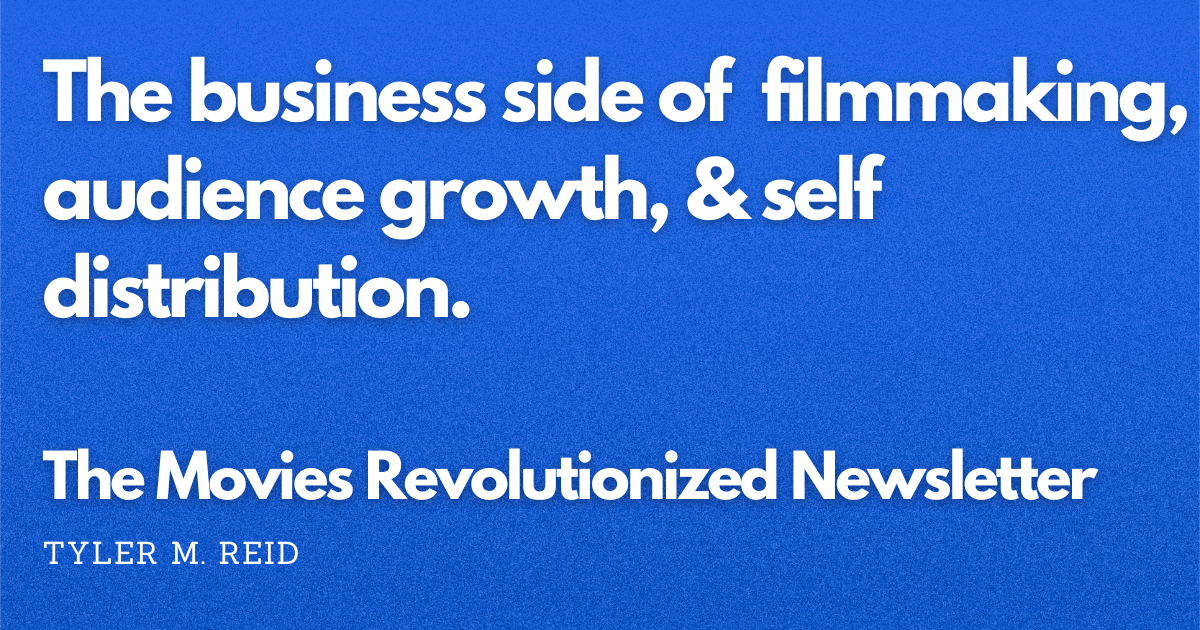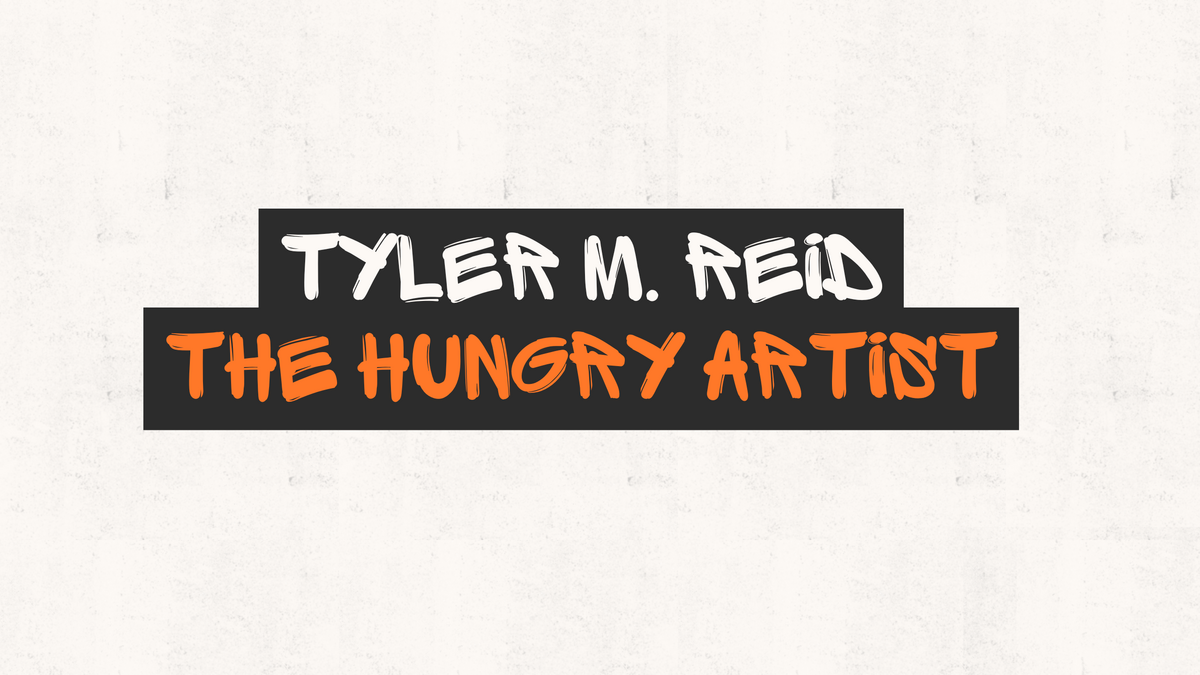This edition of the newsletter is brought to you by Beehiiv
Let’s get serious
Your newsletter, now exiting the stratosphere.
We’re beehiiv, the newsletter platform built for builders. Every product we drop and feature we create is made with one goal in mind: exponential growth.
Our founders sought to bring the tools and tech to creators everywhere that helped turn their old company into a multi-million dollar operation. So when we say we can take you from “up-and-comer” to household name, we mean it.
If you need a beautiful destination for your content, use our no-code website builder. If you want paid subs, we don’t take a dime. If you want big name sponsors, we connect you with the likes of Nike and Netflix.
In short: maybe your newsletter is stuck on the ground floor because your newsletter platform is stuck in the last decade.
I have my script and I am ready to get money to make my movie
That is almost the first thing everyone thinks when they have a script. I get it, you ready to jump into your project and get it made. The only thing stopping you is your having money to get your film made.
Way too many indie filmmakers start their journey asking "how will I raise money for my film?" That’s almost the last question to ask after you have written your script.
I know you’re a creative person, so am I, that’s where it all started for me. You have a story we want to tell. You write the script (or get it written), fall in love with it, and then immediately think about how to get it made. That passion is great, but it's also what leads you down the wrong path.
The right way to think about your film project goes like this:
How will I sell it?
How will I make it?
How will I raise money?
But most filmmakers go about it backwards:
How will I raise money?
How will I make it?
How will I sell it?
The problem is simple. When you start with "how will I raise money?" you can't actually answer the key questions investors will ask. Just a little aside here, even if you just want to go crowdfunding, you owe it to those people to know how your film will get out into the world. They are donating to support you in getting your film not only made but seen.
Every investor will want to know two things:
What's your plan to make this film within budget?
What's your plan to make their money back?
Start with sales
Before you even think about budgets or investor pitch decks, you need to know how your film will reach audiences. This means understanding what kind of film you are actually making? Not just genre, but who is this film FOR? What audience will pay money to watch it?
What's the realistic distribution path? Are you aiming for theatrical? Streaming platforms? VOD? Each path needs different elements to succeed.
What makes your film marketable? Star power? Festival potential? Strong genre elements? Clear audience appeal?
These answers shape everything else about your project. They determine your realistic budget range. They influence what talent you can attract. They define your potential revenue streams.
Then think about making it once you know how you'll sell your film, you can plan how to make it. Then you can ask questions like, does my budget match my distribution plan? No point spending $2M on a film that can only make $500K in your target market.
Where will you shoot? Tax incentives aren't just free money. They're crucial for showing investors you can maximize their investment. Some investors will even ask if the tax credit is available. Even if they don’t ask, it’s always nice to have that credit as first in line for investors.
What about budget?
Does your talent match the budget levels? Depending on your cast, its not just their fees, but they may have stipulations about their travel and accommodation. Of course this may not be something you have to think too much about in a micro budget film. Talent isn’t the only draw to why audiences see movies. Horror is a great example of that, audiences will choose horror because of concept and story far over who is starring in the movie.
Can your script actually be made for your budget? Too many filmmakers try to shoot $2M scripts for $500K. What that means is that there are a lot of things in the script, this doesn’t just have to be action or things that look expensive on screen. Even too many locations or more night shoots than day shoots can affect the budget getting higher. Exteriors will always cost more than interiors.
It’s always best to get a budget done by someone with experience. HOWEVER, if this is a micro budget film and say it’s less than $100,000, it is possible to do this yourself, but you will first want to look at examples of budgets and find some tutorials.
One of the hardest things to do is to go to an investor after you have started filming and then realize you need more money. It is possible to use things like crowdfunding for finishing funds if you find yourself with fully filmed movie but still need more for post production. Even though, I would say, do the best you can to plan for all of that, but still you can use crowdfunding for finishing funds.
When you know all of that stuff, like how you will sell the film or how much your film will actually cost to make, then it’s time to go out to investors.
You’re ready to answer investor questions
They care about two things, that they won’t lose all their money and that they will actually make money.
You'll have real numbers to discuss.
Now you’re ready to talk to investors with confidence. You’ve figured out your distribution plan, got a solid sense of your budget, and understand how to make your film marketable. You’ll be able to answer those key questions: How will you make this film within budget? And how will you make sure your investors get their money back?
By flipping the script, starting with how you’ll sell it, then thinking about how you’ll make it, and only then raising money, you’ve laid the groundwork for success.
Now, you’re not just another filmmaker with a script. You’re a strategic storyteller who knows how to bring a vision to life and turn it into a reality.
You are among at least a million screenplays at any given time that are looking to get made. No, that is not some exaggerated statement, there are roughly a million scripts just in the United States floating around that people want to get made. Investors are in no shortage of projects to get behind. It is your job to stand out and prove why yours is the best bet compared to the hundreds of other film pitches they will see.



